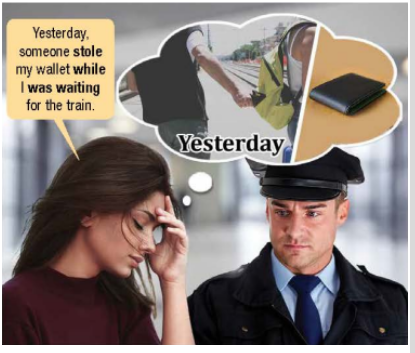Hãy nhập câu hỏi của bạn vào đây, nếu là tài khoản VIP, bạn sẽ được ưu tiên trả lời.

a. was listening / started
b. fell / realised / jumped
c. swam / came / climbed / were arguing
d. began / was deciding / heard

1. arrived
2. closed
3. were sleeping
4. was taking off
5. saw
6. opened
7. read
8. put
9. picked up
10. went
11. was
12. was not raining
13. were walking
14. crossed
15. followed
16. didn’t know
17. were going
18. didn’t want
arrived - closed - were sleeping - was taking off - saw - opened - read - put - picked up - went - was - wasn't raining - were walking - crossed - followed - didn't know - were going - didn't want

E. In pairs, make sentences about a past vacation. Change the verbs into the simple past.
(Thực hành theo cặp, hãy viết câu về một kỳ nghỉ trong quá khứ. Thay đổi các động từ dùng thì quá khứ đơn.)
1. Last summer, / my family / go on / vacation. Last summer, my family went on vacation.
2. We / drive / all day. ____We drove all day___________________________________
3. In the evening, / we / arrive / at the campsite. ___________________In the evening, we arrived at the campsite____________________
4. Every day, / I / swim / in a lake / and / walk / in the forest. ________________Every day, I swam in a lake and walked in the forest_______________________
5. One day, / we / take / a tour of an old city. _________________One day, we took a tour of an old city______________________
6. We / be / very happy. ______We were very happy_________________________________
7. It / be / an amazing trip. ______It was an amazing trip_________________________________

1.After I had had dinner,I watched TV
2.After we had bought a newspaper,we had a coffee
3.After we had played tennis,we went home
4.When my cousin phoned,I had gone to sleep
5.When we arrived at the match,Mesi had scored two goals
6.When their mother got home,the children had done the housework
